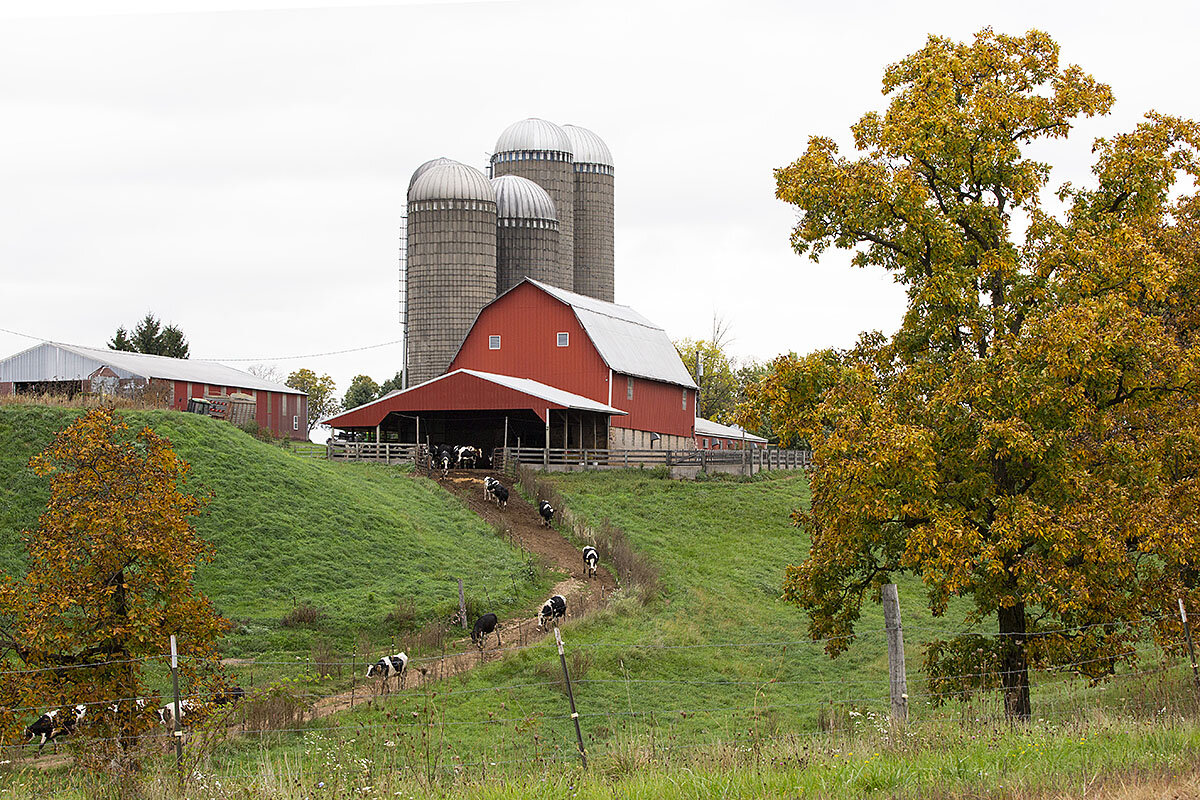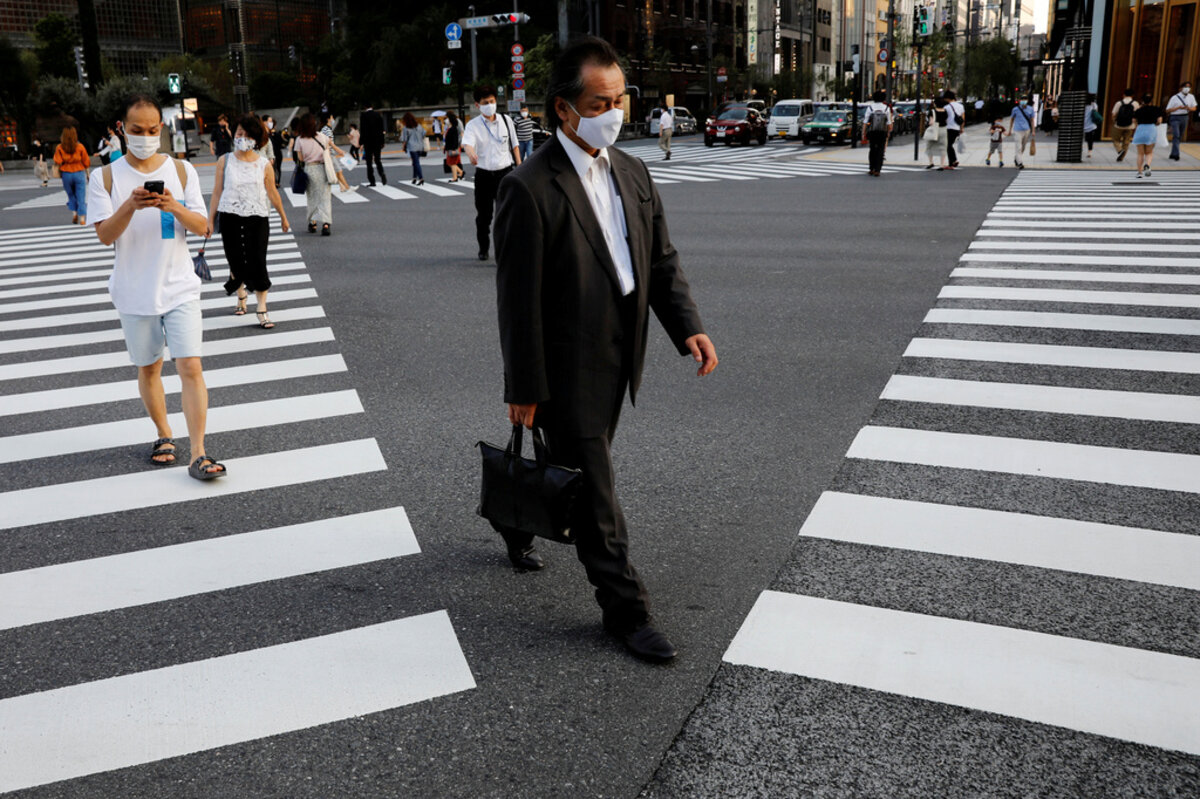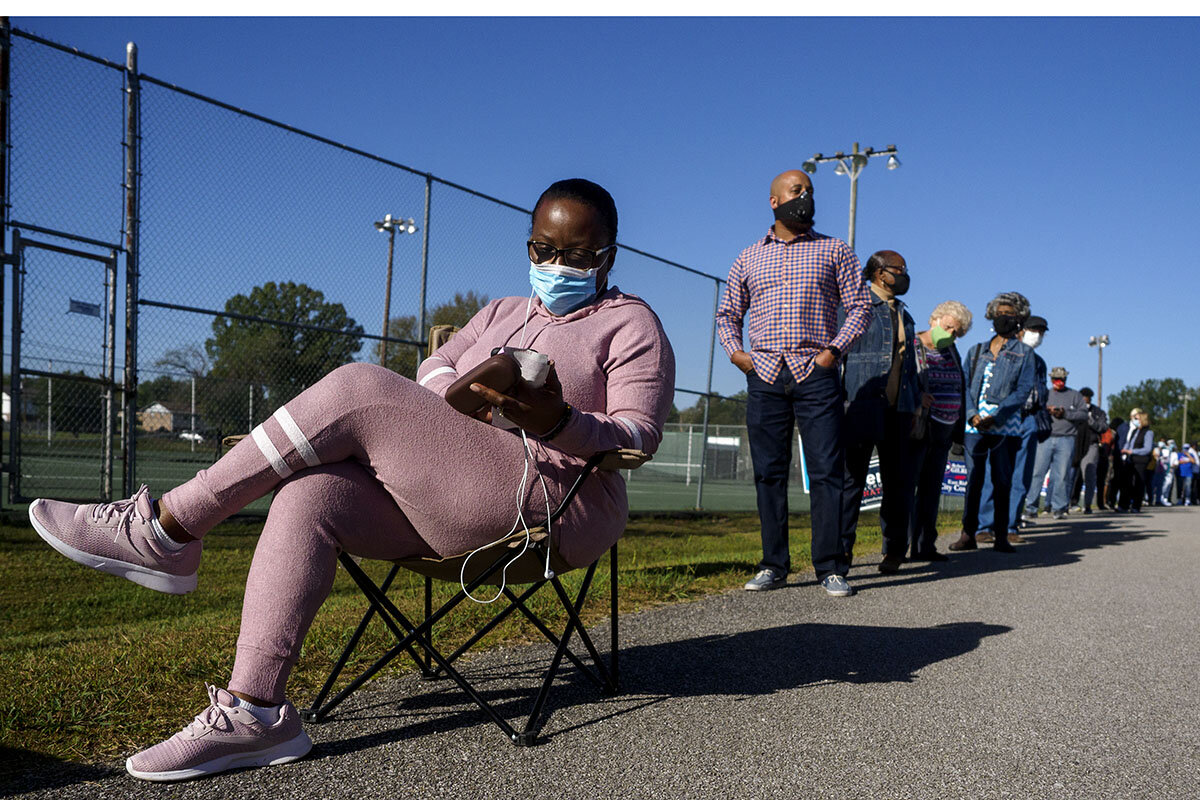The respect shown during hearings for U.S. Supreme Court nominee Judge Amy Coney Barrett may mask a political polarization building for decades. Our reporter looks ahead at the likelihood of scenarios that could alter the legislative and judicial branches.
Monitor Daily Podcast
- Follow us:
- Apple Podcasts
- Spotify
- RSS Feed
- Download
 David Clark Scott
David Clark Scott
We’re going to step off the beaten news trail for a moment to talk about rats. We humans don’t tend to have much use for them. They fall somewhere between cockroaches and snakes on the “creepy” scale.
That’s what makes Magawa notable.
We’ve mentioned this little African pouched rat recently in this space, when he won a British charity’s award for animal bravery. But we thought you’d appreciate hearing more of his story. Since the inception of that award 18 years ago, all the recipients have been dogs. Until now.
What did our whisker-nosed rodent do? For the past seven years, he’s been quietly saving human lives by sniffing out unexploded land mines in Cambodia. He was trained by a Belgian group that’s been mopping up after wars in Africa and Southeast Asia for the past 20 years.
Rats can do the job more efficiently than humans or dogs, and they’re safer because they can lightly dance over a minefield without setting off the explosives. Unexploded land mines and bombs are a problem in 59 countries. Nearly 7,000 people were injured or killed by mines in 2018, the latest available tally.
When Susie, a friend of mine with pet rats, heard about Magawa’s award, she wasn’t surprised. “They’re like little dogs. You can call them by name and they’ll come. They’re very smart, affectionate, curious, loving, and loyal,” she said. When Susie yells “Bedtime!” her critters scamper up her pants to be put in their cages.
Susie’s perception of rats shifted years ago. Maybe the courage award for Magawa will change how a few more humans view these oft-reviled, lifesaving rodents.










